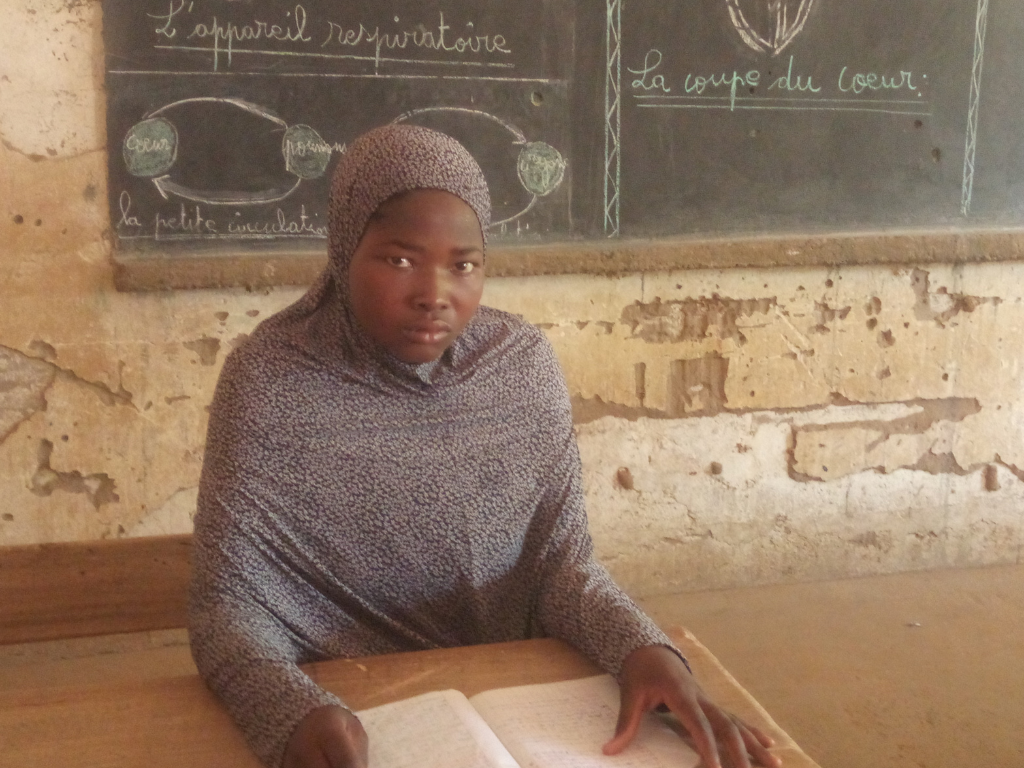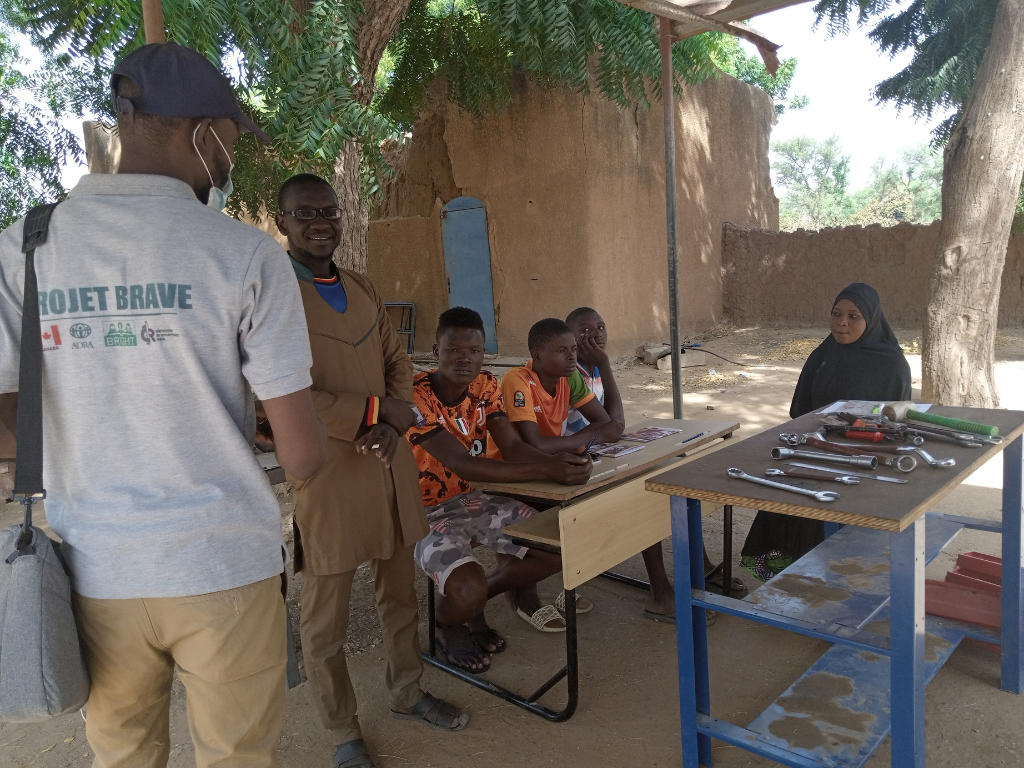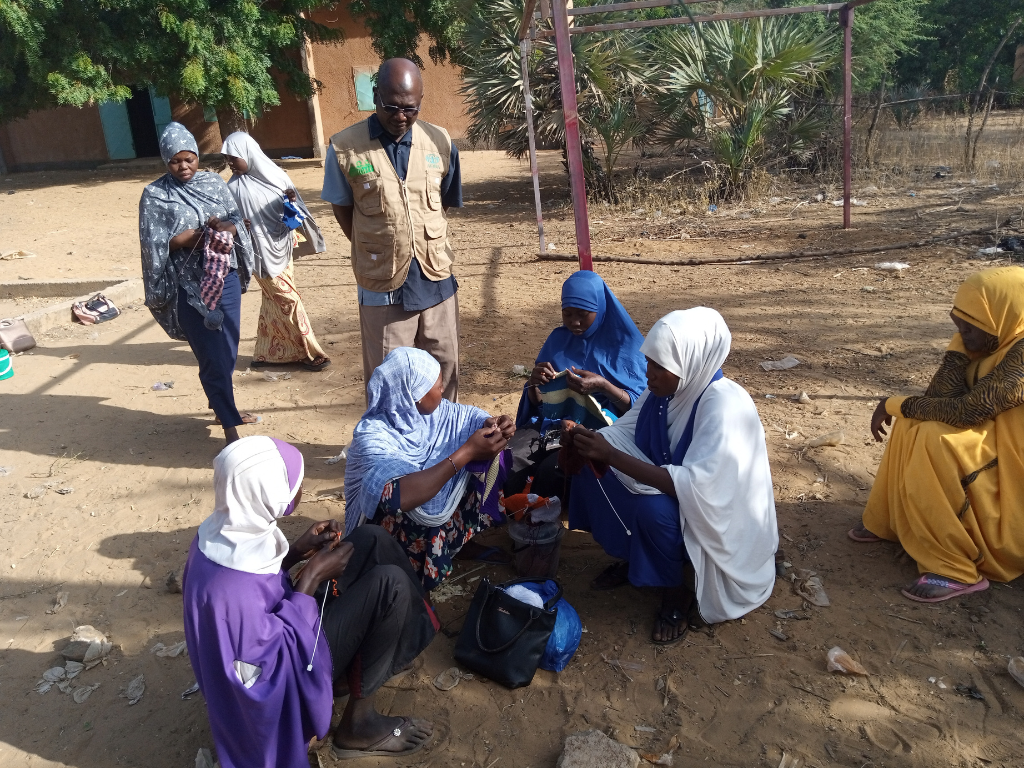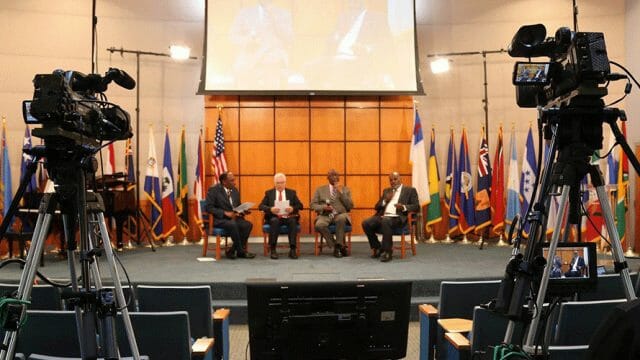In Niger, the BRIGHT project from ADRA is empowering women, one life at a time.
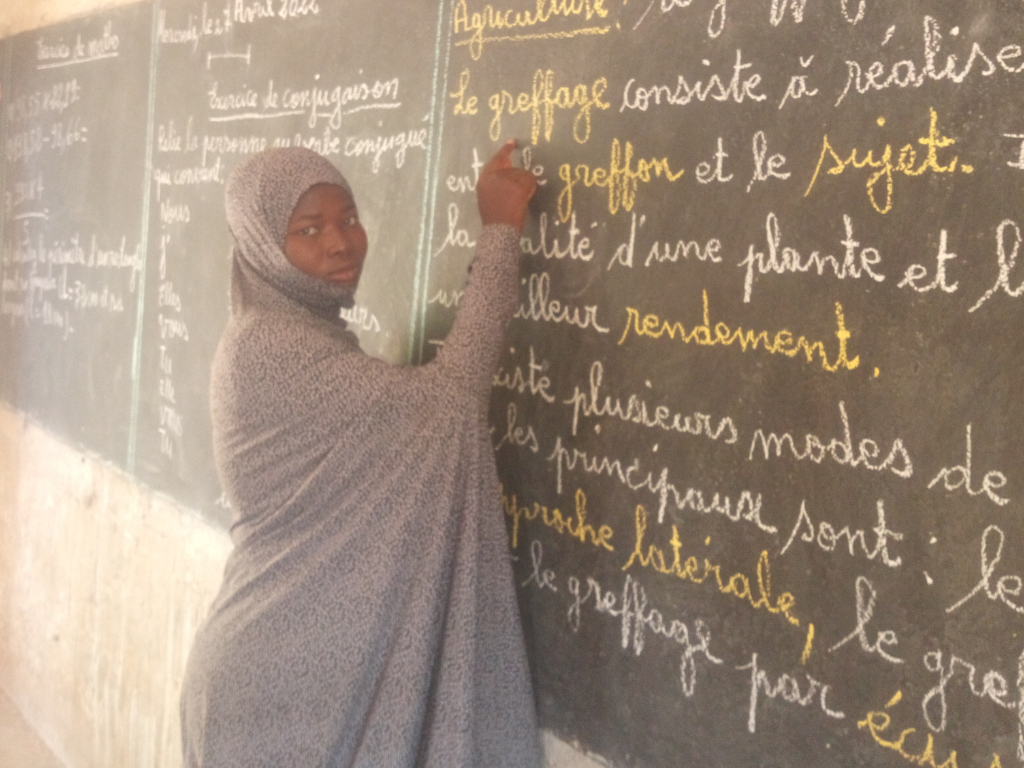
Would you defy your family to go to school? Would you go against the grain of social expectations to achieve your dream? How much is an education worth to you?
Aïchatou Adamou is going against the grain with strong support from her mother, Zeinabou. For Aïchatou, the dream is independence, and education is the way to secure it.
Aïchatou lives in rural Niger, where the obstacles to education are numerous. Long and potentially dangerous distances to schools discourage parents from sending their children. A lack of support for the schools, as well as supplies for the students, hinders attendance. Due to poverty, children are often needed to help support their families, leading them to leave school at a young age.
For girls, there is added complexity. Gender norms and family and social expectations don’t value girls’ education. Instead, girls are forced to marry young and rely on their husbands. Yet, many of these children, along with some of their family and community, yearn for a better life. Education is a proven way to break the cycle of poverty and the perpetuation of injustice.
Through the BRIGHT project, the Adventist Development and Relief Agency (ADRA) has partnered with communities in Niger, Sudan, and Myanmar to make education more accessible to children. BRIGHT is changing the perceptions of education’s value, thus ensuring more children — especially girls — go to school. It is also building teachers’ capacity and offering support to schools.
At 15, Aïchatou has only a third-grade education. The fifth of eight children, she had to abandon school to help support her family by selling couscous and peanuts in the market.
When BRIGHT came to Aïchatou’s community, she saw an opportunity for something better. She enrolled in the BRIGHT accelerated learning program, which will enable her to complete her primary education in two years.
“No one is perfect,” her teacher, Mrs. Seyni, says. “But she does her best; she works hard. She reminds the other students to be respectful of the teacher. And if she sees that a classmate doesn’t have something, even if it’s a pen, even if it’s the only one she has — she gives it to the one who needs it. I appreciate that about her.”
Though in school, Aïchatou’s challenges aren’t over. Her father objects to her returning to school, and she risks his anger by pursuing this path. But Zeinabou, who believes strongly in education and wants her daughter to be independent, covers for Aïchatou. Occasionally, when her family’s financial needs are great, Aïchatou must miss school to sell foodstuffs in the market. Additionally, she suffers from eye troubles.
Yet, Aïchatou is persevering in her dream of independence. For her, it’s worth it to get an education. She wants to support herself through her own business as a seamstress. She believes that knowing how to read and write, along with numeracy skills, will help her to be successful.
A Woman Mechanic: Farida’s Story
Aïchatou is not the only girl with big dreams and a strong drive to achieve them.
Farida is 18 years old, but only has a sixth-grade education. Difficulties in school led to her poor performance, so the decision was made that she should drop out.
“I didn’t like school anymore,” she confided.
When BRIGHT came to her community, Farida snatched at the opportunity. Rather than join the accelerated learning track, Farida opted for the vocational school track. Contrary to expectation, Farida did not want to become a cook or a seamstress, two vocations widely considered as acceptable for women. Rather, much to the opposition of her family, Farida pursued a career as a rural mechanic.
Farida enrolled at the local vocational school, which had received some material support from the BRIGHT project. She was undaunted at the prospect of being the only girl in her class. She had her eye on the prize of independence through her future business as a rural mechanic. In Farida’s area, rural mechanics are rare. This rarity means that if a rural mechanic sets up shop, there would be plenty of business opportunities. Farida knew that the amount of motorcycle repairs, generator repairs, and repairs on motor pumps — which are widely used for gardening — would keep her in business.
Unfortunately, Farida’s courage and determination were no match for the onslaught of opposition from her family. Without a single champion among her relatives to offer support, Farida succumbed. Thankfully, she wasn’t pressured to drop out of vocational school altogether. Though she is now following the more traditional seamstress track, she still cherishes her dream of becoming a mechanic.
Farida looks with hope to the sensitization sessions that ADRA conducts in communities to transform hearts and minds regarding girls’ education and opportunities. The perception of her peers, and several parents, is not different from Farida’s parents’ perception of gender. BRIGHT is working within communities to remove physical, mental, and behavioral obstacles to children’s — especially girls’ — potential. While Farida is grateful for the material support that BRIGHT provided, she hopes that many of her peers will be empowered by the project’s sensitization sessions to pursue whatever vocation they dream of.
Every Child, Everywhere, in School
Parents everywhere want their children’s lives to be better than their own. Zeinabou is supporting Aïchatou’s path to independence and opportunity — something Zeinabou didn’t get to enjoy. Aïchatou’s children will surely benefit from her choices. Perhaps Farida will overcome the obstacles in her path. Perhaps she will ensure her children enjoy the opportunities she has had to fight hard for.
ADRA believes that every child, everywhere, has the right to be in school. Your support is helping students achieve their dreams for a brighter tomorrow.
The original version of this story was posted by ADRA Canada.


